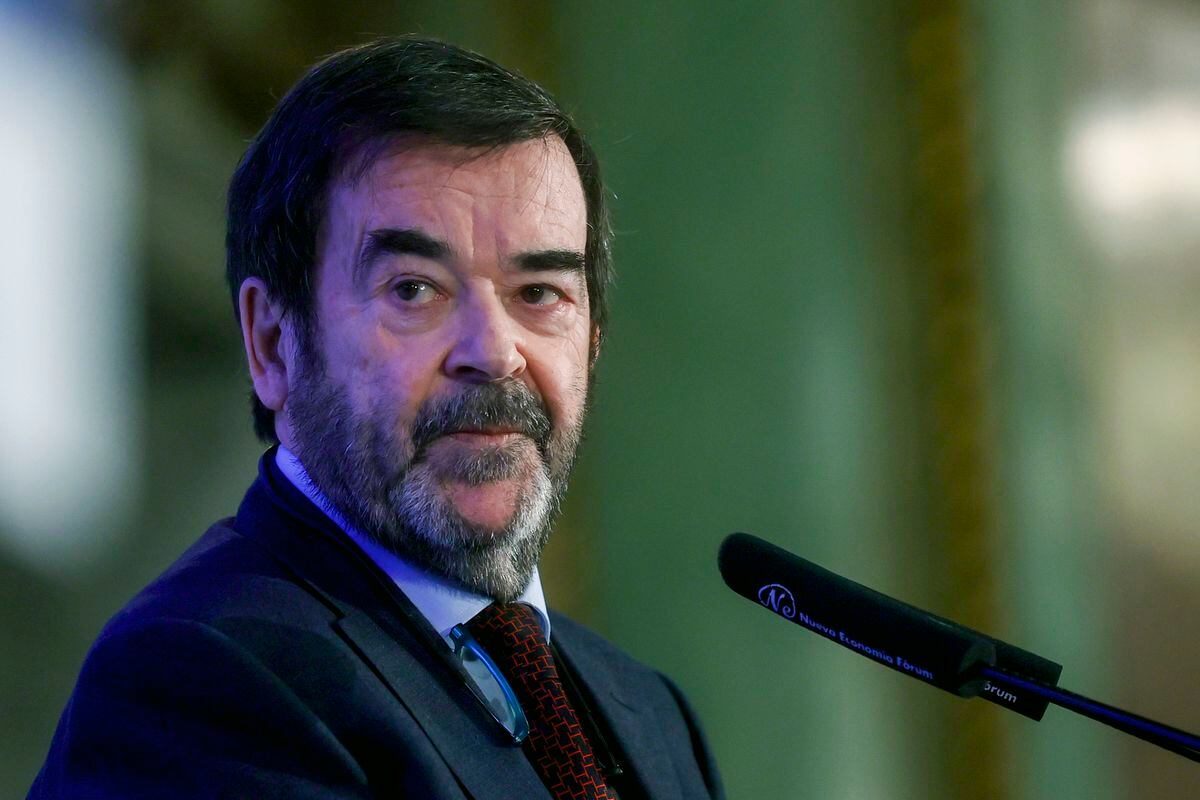The president of the PP, Alberto Núñez Feijóo, considers that the renewal of the General Council of the Judiciary (CGPJ) is not a priority in the current situation, despite the fact that the governing body of the judges has a mandate that has expired since December 2018 , which is one of the main institutional anomalies in Spanish politics.
For this reason, although the PP has resumed talks with the Executive to renew the Judiciary, its leader leaves it in the air that the agreement be closed before June 12, as requested by the Government.
That day expires the nine-year mandate of four magistrates of the Constitutional Court (two that correspond to appoint the Government and two to the Council of the Judicial Power), so, if the term is exceeded, the Constitutional Court will once again have 4 of its 12 acting members.
The PP is not in a hurry to close the agreement - the non-renewal would also mean maintaining the current conservative majority of the court of guarantees.
Sources from Genoa emphasize that "the priority is that the pact is good", so "the PP does not commit to doing it before June 12".
“It will be done with the time it takes us”, they warn in the game.
Of the four magistrates ending their term, three belong to the conservative sector (Antonio Narváez, Santiago Martínez-Vares and Pedro García-Trevijano) and one to the progressive (Juan Antonio Xiol).
The next renewal will predictably turn this scenario around: the progressives could add the two members appointed by the Government and one of those appointed by the CGPJ, while the other would be proposed, in principle, by the PP.
But to carry out this renewal, that of the Judiciary must first be unlocked, since the reform of the Organic Law of the Judiciary (LOPJ) approved in March 2021 prevents the governing body of the judges from making discretionary appointments when, as is happening now, have expired mandate.
The Government has studied several options, such as introducing a change in the LOPJ that allows the Executive to propose its two candidates to the Constitutional Court and leave the corresponding ones from the CGPJ pending, but for now it is committed to renewing the governing body of the judges as soon as possible to promote also the Constitutional.
This court, in turn, has on the table an appeal against the law that vetoed appointments to the Judiciary while the mandate has expired and that, in the event that it agrees with the appellants (PP and Vox), will allow the CGPJ to appoint its two magistrates of the Constitutional Court.
Feijóo has promised Pedro Sánchez to renew the Judiciary, something that his predecessor, Pablo Casado, did not want to do for more than three years, but the times are different.
The leader of the PP considers that renewal is not a priority in this context of "economic, social and institutional" crisis.
“We have resumed talks, but are our country's priorities to reach an agreement in June?
The priority should be for the Government to come to an agreement with itself”, stress sources close to the popular president.
Before sitting down with the Government, the PP has decided to listen to the judicial associations.
The last meeting is scheduled for May 18, with the progressive Judges for Democracy (JJPD), so at least the pact will not arrive before that date.
The problem is that then there will be a month left for the Andalusian elections on June 19.
The PP officially assures that the elections will not condition the agreement of the Judiciary, but management sources acknowledge that the party is not interested in an agreement with the PSOE before going to the polls.
The Socialists, for their part, are convinced that the renewal will be postponed to at least after the Andalusian ones, according to sources from their leadership.
The reality is that the PP is not in a hurry to accelerate the renewal of the CGPJ.
In addition to all the conditioning factors, the crisis over the
Pegasus case
makes an agreement difficult.
Feijóo appeared on Wednesday in Santiago in very harsh terms against the Executive, whom he accused of "eroding democracy" due to the espionage scandal and of causing "a state crisis."
Shortly before, in the control session in Congress, the president had described the party as "mangante".
Despite the tension, the leader of the PP did not break the bridges and maintained, in relation to the CGPJ, that the talks must continue "with the calm, rigor and seriousness that these cases need", although in his direction they recognize that in At this juncture, agreeing with the PSOE has become complicated.
“The PP cannot now portray itself with the Government”, admit sources from the popular leadership, who warn: “This makes the relationship difficult.
The PP needs the PSOE to behave like a State party to reach State agreements”.
The three main associations of judges demand to renew the Council before reforming the system of election of members
In the round of conversations that the PP is holding with the judicial associations, the popular have already met with the two majority associations, the Professional Association of the Magistrature (APM), with a conservative tendency, and the Francisco de Vitoria Association (AFV) , moderate.
The meetings have been attended, by the PP, the general secretary of the party, Cuca Gamarra, and deputy secretary of institutional policy, Esteban González Pons.
Both associations have informed them that the priority should be to "immediately" renew the General Council of the Judiciary and, later, tackle the reform of the election system of the 12 members (of the total of 20) who are chosen between judges and judges. judges, in accordance with the Constitution.
This is the position that the progressive association Judges and Judges for Democracy has maintained until now and that it will reiterate in the meeting with the PP scheduled for next week, according to its deputy spokesman, Fernando de la Fuente.
In this way, the three main associations are going to send the same message, different from the one that the PP insisted on maintaining in Pablo Casado's stage.
Sources familiar with the conversations point out that the popular are now "open" to accept this route: renew the governing body of the judges as soon as possible and, once the process is closed, open the debate on what the election system should be like. from now on.
The conservative associations are committed to starting a written commitment from the PSOE when sealing the renewal of the CGPJ that the change of the system will be addressed in the immediate future, but without specifying at that time what that new formula should be like.
"The current system is clearly improvable and we all believe that it must be reformed. But it is the Courts that must work to see how to do it," says Jorge Fernández Vaquero, spokesman for Francisco de Vitoria.
His association defended until a few months ago that the election system had to be changed before renewing the current CGPJ, but, after a process of "internal reflection", his position has changed.
"The renewal of the Council is imperative. It is seriously deteriorating the perception of the body," says Fernández Vaquero.
Exclusive content for subscribers
read without limits
subscribe
I'm already a subscriber

/cloudfront-eu-central-1.images.arcpublishing.com/prisa/L733AOEJF5HAJIGCOPP64IKKEA.jpg)


/cloudfront-eu-central-1.images.arcpublishing.com/prisa/DXFPLFBJPRDFBOOW5OWCTCNHJU.jpg)
/cloudfront-eu-central-1.images.arcpublishing.com/prisa/OTWB63YVDRNKAQLEH7S4FTFBNI.jpg)

/cloudfront-eu-central-1.images.arcpublishing.com/prisa/OCXVGAGDFFE6NDRQIKWRK26LLU.jpg)







